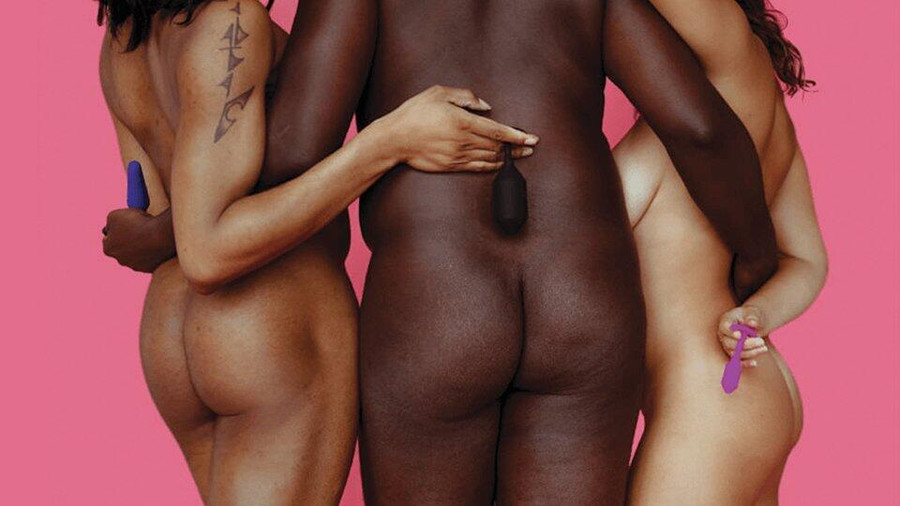After the near-ubiquitous haute appropriation of the rainbow for every Pride-themed mainstream marketing campaign in the month of June, it certainly feels like the strong convictions and fiery statements have once again faded into the background.
But full disclosure: true activism is not a trend. And it’s not a marketing gimmick, although the proof of concept is certainly there.
We need to be willing to stand up and fight for the world we want.
In the close-knit “merry band of misfits” world of pleasure and sextech, few brands would consider themselves to be “activist” businesses. Nevertheless, for many it’s woven into a company’s ethos.
So, what defines activism in the industry? The answer is as ambiguous as the question itself, but in short, it boils down to an ingrained company-wide desire to use one’s power, however big or small, to make the world a better place.
XBIZ took a look at the movement towards social responsibility within the pleasure industry, profiling a number of companies that use their clout to do good.
There are many approaches and even more reasons why companies are getting involved at the online, local, national and international level, but one thing’s for sure: adult is stepping up and committing to creating a more equitable and tolerant world, one gesture, one statement and one small change at a time.
A Brave New World
For many in the pleasure industry, their activism is a response to a changing world.
We live in a polarizing era. As the rights of women are effaced and those of the LGBTQ community are challenged, as the war on porn rages and FOSTA/SESTA continues to wreak havoc, as puritanical sex education persists, it feels like now, more than ever, the line in the sand has been drawn and it’s time to pick a side.
“We don’t want to always make it seem like it’s a political act to simply buy a vibrator,” said Alexandra Fine, CEO of Dame Products. Fine, alongside CTO Janet Lieberman, recently co-authored an ad in The New York Times alongside six other female-fronted companies coming out in staunch support of women’s right to choose. The ad, which proclaimed that “abortion is a human right,” and “now is the time to speak up,” came out days after the country’s most restrictive abortion bans since Roe v. Wade were signed into law in Alabama.
Among companies that bill themselves as female-friendly brands and predominantly market to women, the recent affronts to women’s reproductive rights and the combined power of the #MeToo and #TimesUp movements have inspired several to speak out against systematic injustices.
“What’s really become apparent is that it is political,” said Fine. “We are both regulated and restricted in ways that we did not ask to be and it just felt like, all right, we need to be willing to stand up and fight for the world we want, for the world we’re hoping to create through our company.”
Pinkcherry, the Canadian retailer and distributor whose “Scream Your Own Name” Womanizer ad turned heads in Toronto, recently jumped on board as well, launching a “Your Body, Your Rules” campaign in response to the abortion bans.
“We decided to have a voice and be heard,” said Lana Grypych, Pinkcherry’s director of marketing. “We want our clients, the women we serve, to feel like we’re in their corner.”
“I’m a female, I have two daughters,” she continued, “they could get pregnant and I would never want them to be in a position where the government decides when they should have a family.”
Representation Matters
For various reasons, some companies have chosen to focus their efforts around a sex- and body-positive message, promoting diversity and inclusivity along the way.
“Something we don’t do,” noted Fine, “we don’t donate a certain portion of all of our revenue to an organization on a consistent basis.”
She explained, “I don’t want people to feel like they’re making a political choice every time they buy a product from us, but I also don’t want to be ashamed of the fact that I’m a feminist and if you’re helping us grow our power in the world through your purchase then yeah, you’re supporting someone who thinks that women have the right to choose what happens to their body.
“For a lot of people, that really resonates with them.”
With their recent “Every Body Has a Butt” campaign, founder and CEO of COTR, Inc., Alicia Sinclair, shared, “It was important for us to showcase how we felt and to create something reflective of what we think the world and brands should look like.”
The campaign, which is “an ode to the inclusive and fluid nature of anal play,” notably features a diverse group of people representing a variety of different genders, races and sexualities.
She continued, “People that work for our company — everyone involved, actually — believes in and is connected to our mission on a very personal level. Whether they are a POC or consider themselves queer or gay, or just feel that all people should have access to sex-positive sex education, everyone on our team is passionate about that form of activism in one way or another.”
Now, Sinclair hopes to continue normalizing self-pleasure by highlighting women outside of the traditional adult space. With their its “Feel My Power” campaign, COTR chose six women from different fields who embody personal empowerment to represent the brand.
“We’re picking influencers that we feel are doing great work or people who we feel are underrepresented — whatever it is that you don’t typically see for the marketing and branding of sex toys.
“By having a diverse group it shows the variety of people who enjoy using sex toys and reaches a larger group of people,” said Sinclair.
“The more people talk about it and are honest about it — those types of normalizing conversations are what we need for people to feel comfortable prioritizing their pleasure or rejecting stigmatizing feelings.”
The Bottom Line
As Sarah Brown from Lora DiCarlo, the sextech company that infamously went head-to-head with the Consumer Technology Association over the recalling of their 2019 CES award, most eloquently put it, “If inclusivity and a social mission for society’s sake isn’t enough incentive, there is also a compelling business case to be made both at the brand level and the retail level.”
Lora DiCarlo, whose open letter to the CTA sparked public outrage over ongoing complaints of sexism at the tech expo, is currently preparing to launch its flagship product, Osé, this fall.
Brown noted that, after speaking out against the injustice, “We had 20,000 email signups as a result of that furor, and then when the CTA gave the award back in May, we had an additional 10,000 newsletter signups in two days.”
Similarly, COTR noticed a 50-percent increase in social media engagement for its “Every Body has a Butt” and “Feel My Power” campaigns while Funkit Toys’ NoFrillDo fundraiser for Sex Workers Outreach Project (SWOP) saw a similar spike in traffic.
“I announced it just before midnight on the last day of April,” recalled founder Kenton. “By the end of May 1, 10 percent of all orders placed through my store had been placed that day.”
“We have very conscious customers these days,” noted Erik Vasquez, marketing director for Sliquid. “They look at everything from the ingredients to who donates to what political campaigns. People really do start paying attention to those things.”
Giving Back
On the other side of the coin, XBIZ spoke to a number of brands who’ve made repeated and, in some cases, ongoing commitments to charitable organizations: Funkit Toys, B swish, Good Vibrations, pjur, Exsens, Blush Novelties, Sliquid and Tenga, to name a few.
At Tenga, which in 2018 donated 1.2 million yen (approximately $11,000) to various LGBTQ organizations across Japan, philanthropic activism has been a core driver since day one.
“From the very beginning, Tenga founder Koichi Matsumoto’s biggest goal has been to fight the shame and stigma that surround masturbation and sexual freedom, and sexual minorities are a huge part of this,” said Tenga’s Tina Carter.
But beyond appealing to its consumer base, Carter noted that Tenga’s continued commitment to fundraising for LGBTQ organizations is in part driven by its own staff, many of whom openly identify as queer.
At Sliquid too, a company that provides both in-kind product and monetary donations to an extensive and ever-expanding crop of recipients, social responsibility is tied into the company culture.
“Sliquid has several LGBTQ employees, so for Pride, I chose the Resource Center of Dallas, which is an organization that services the North Texas LGBTQ community, as the beneficiary of a part of our ecommerce sales for the month of June,” said Sliquid's Vasquez.
“Because of who our owner (Dean Elliott) is and our employees being a very diverse crop of people, we stand very firm in our belief of community and social engagement and it’s been that way since the very beginning,” he said.
The Hard Line
Whether it be engaging their local communities, promoting a body-positive message, standing against oppression or supporting a charitable organization, companies are stepping up and being loud.
For some, it comes from a “take care of thy neighbor” sense of social responsibility to give what can be given.
For others, it is an act of rebellion, an inherent act of activism as COTR’s Sinclair put it.
“There’s a lot of tough stuff going on politically right now,” she said. “Everything that is super important is being challenged, so now is really a critical time to speak up.”
For a select few, not to participate is simply not an option.
When it comes to leveraging a brand’s presence and scope to do good in a precarious world, Funkit’s Kenton summed it up: “I don't think we can afford not to.”









